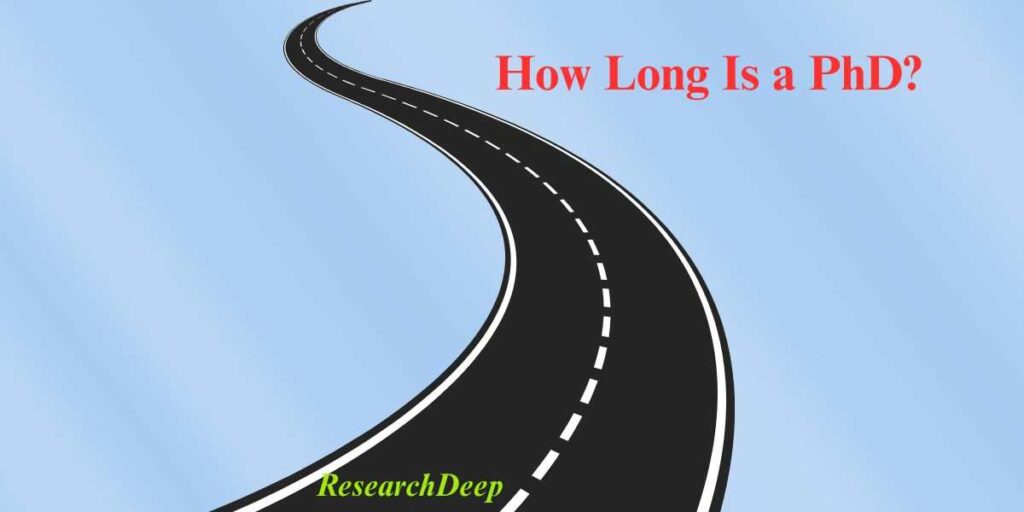Last updated on November 25th, 2025 at 12:52 pm
A PhD is one of the most demanding academic careers, and it’s not surprising that many students frequently ask, “Is a PhD hard?” while others may ask, “How hard is it to get a PhD?” or “What is the hardest part of a PhD?“, etc.
The challenges of a PhD program vary, but they are generally considered intellectually, emotionally, and logistically taxing.
Table of Contents
The journey requires a great deal of perseverance, mental strength, and a well-honed skill set. While every PhD candidate has a unique experience, certain aspects of the journey are consistently difficult for most students.
Key Factors That Make a PhD Hard
1. Time Commitment
PhD programs often take between 3 to 7 years to complete, requiring a sustained commitment over a long period. The lack of a structured schedule can lead to struggles with time management.
2. Original Research
A PhD necessitates the creation of original research, which can be a daunting task.
Candidates must explore new areas, bring unique insights, and contribute to the field’s knowledge.
The heart of a PhD lies in conducting original research. Students must understand the importance of reviewing literature but also contribute something new to their field.
This is a monumental task that requires creativity, perseverance, and critical thinking.
3. Dissertation Writing
One of the most important aspects of a PhD is the benefit of a dissertation. Students must learn to write an extensive and well-organized thesis, sometimes hundreds of pages, based on original research, and is easier said than done.
4. Financial Strain
With limited financial support, many PhD students experience financial hardship.
Depending on the country and institution, funding options may be sparse or insufficient.
5. Work-Life Balance
Balancing academic work with personal life can be a significant challenge. PhD students more often than not feel the pressure to sacrifice personal time for the sake of completing their studies.
6. Isolation
Research-focused work can be solitary, leading to feelings of isolation, particularly in fields where collaboration is minimal.
Doctoral students will be spending long, lonely hours in a laboratory working alone on their respective projects.
7. Mentorship Issues
Navigating a PhD with an unsupportive or difficult advisor can make the journey even more challenging. The quality of mentorship is often a make-or-break factor in the PhD experience.
8. Intellectual Pressure
Many PhD students experience imposter syndrome, feeling inadequate compared to their peers or overwhelmed by the expectations of contributing something original to their field.
Strategies to Overcome PhD Challenges
- Effective Time Management: Use tools like calendars and project management software to keep track of deadlines and stay organized.
- Seek Support Networks: Building a strong network of peers, mentors, and friends can help reduce feelings of isolation.
- Use the Pomodoro Technique: Writing the dissertation can often lead to hitting writer’s block. This technique comes in handy to avoid it and increase your productivity.
Maintain a Healthy Work-Life Balance: Ensure that personal well-being is a priority by scheduling breaks, hobbies, and time with loved ones.
FAQs Related to: Is A PhD hard?
Is a PhD more difficult than a master’s?
Yes, most students find a PhD more demanding than a master’s. Apart from the extra coursework, the commitment of 5-7 years of your life can be a big ask.
Is a PhD worth it?
A PhD imbibes several invaluable skills throughout its tenure. Many of them will be transferable to other aspects of your personal and professional life.
What is the hardest part of doing a PhD?
The hardest part of a PhD varies from person to person, but common challenges include dissertation writing, balancing work-life responsibilities, and the pressure to conduct original research.
Conclusion
Yes, a PhD is hard, but with the right strategies, resources, and mindset, it is possible to overcome the challenges and succeed.
The key to success lies in perseverance, resilience, and taking proactive steps to manage the various hurdles that arise along the way.




